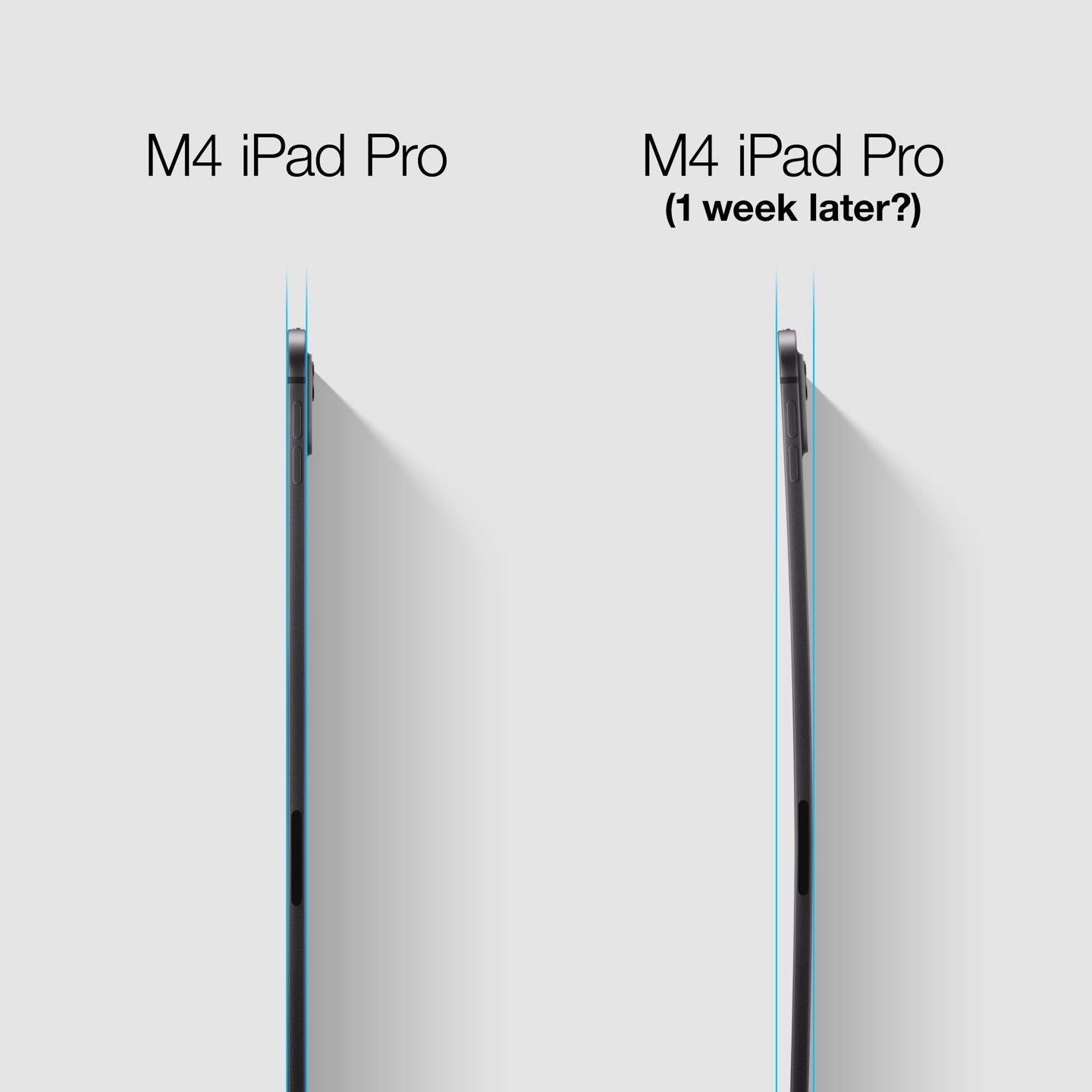MacRumors, on Threads, just four days ago:
Apple’s thinnest device ever.
#ipadpro #bendgate

Tim Hardwick, writing on MacRumors today:
Despite videos indicating that the 2018 iPad Pro models bent more easily than other models, Apple said the bend did not worsen over time or negatively affect the iPad’s performance, and that concerns over the device’s durability were unfounded.
Nevertheless, some iPad owners were understandably upset to find defects in devices that cost hundreds of dollars. Apple naturally wants to avoid a similar scenario with its latest 2024 models.
To allay concerns, in an interview with Arun Maini, Apple’s senior VP of hardware engineering John Ternus reveals that Apple has added a new protective “cowling” over the main logic board. This metal cover not only helps with heat dissipation, but also “effectively creates a central rib that runs through the whole thing and tremendously improves the stiffness of the products,” according to Ternus.
And:
If early reviews are anything to go by, a handful of outlets have noted that the devices do feel particularly durable despite their impressive thinness. Do you have lingering doubts? Let us know in the comments. Pricing on the M4 iPad Pro begins at $999, and it can be purchased from Apple’s website.